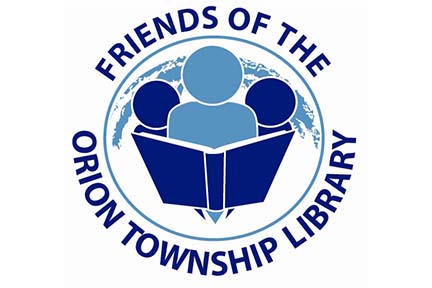
USPS is one of nation’s most trusted institutions
|
|
|||
|

|
|
|||
|

 |
|||
News Release |
|||
|
|||
| We recently launched a new website, and we’d love to hear what you think via this brief survey. Thanks for helping us improve our site for all users! |


Press Release FOR IMMEDIATE RELEASE: April 18, 2022 CONTACT: Bob Wheaton, 517-241-2112, WheatonB@ Children’s Trust Fund observes Child Abuse Prevention Month Activities, events around the state culminate in April 26 gathering at State Capitol LANSING, Mich. – Michigan’s Children’s Trust Fund is recognizing the importance of preventing child abuse and neglect with a month of activities that will culminate with an April 26 ceremony on the lawn of the State Capitol. Activities and initiatives through Michigan this month will center on the symbolic blue and silver pinwheel of Prevent Child Abuse America, which serves as a visual representation that everyone plays a role in providing children with a bright future. The mission of the Children’s Trust Fund to keep children safe and strengthen families across the state takes special significance each April for Child Abuse Prevention Month. As the only statewide organization dedicated to the prevention of child abuse and neglect, the work of the Children’s Trust Fund – which is within the Michigan Department of Health and Human Services (MDHHS) – supports local programs and services that touch all 83 Michigan counties. “Prevent Child Abuse America introduced the Pinwheels for Prevention campaign in 2008,” said Suzanne Greenberg, executive director of the Children’s Trust Fund. “The pinwheels are a representation of child-like whimsy and lightheartedness as well as a vision for a world where all children grow up happy, healthy, and prepared to succeed in supportive families and communities.” The Power of the Pinwheel is the theme of this year’s pinwheel campaign. Through the 100-plus prevention partners of the Children’s Trust Fund and this year’s statewide partnership with Blue Cross Blue Shield of Michigan, supporters of preventing child abuse are planting 50,000 pinwheels in hundreds of gardens throughout the state. The 14th annual Child Abuse Prevention Awareness Day rally is 11 a.m. April 26 on the steps of the Michigan Capitol. Featured speakers this year include MDHHS Director Elizabeth Hertel. The inaugural Inspire Award winner for volunteer service and commitment to preventing child abuse and neglect in Michigan will be presented to Sharon Barry of Barry County. “We are thrilled that our new partnership with Blue Cross Blue Shield of Michigan is giving us farther reach to expand and amplify our message for Child Abuse Prevention Month,” Greenberg said. “When we recognize that child abuse and neglect affect each of us and can unite under a common cause, we are giving hope to every child in our state and ensuring Michigan secures a stronger future.” For information on the Children’s Trust Fund and Child Abuse Prevention Month, visit michigan.gov/ctf. |

Media contact: Carla Tousley, treasurer
FOR IMMEDIATE RELEASE
Friends of the Orion Township Library Gently Used Book Sale
(Lake Orion, Mich.) April 18, 2022 – The Friends of the Orion Township Library will be hosting the Friends Gently Used Book Sale at the library with public days Wednesday, May 18, 2022, through Saturday, May 21, 2022, and exclusive preview to “Friends” members and teachers on Tuesday, May 17, 2022.
“Our Friends book sales are a great place to pick up summer reading material and help the Friends raise funds for our library at the same time,” said Don Walker, president of the Friends of the Orion Township Library. “Donations have continued pouring in, thanks to the generosity of library patrons, and we are well stocked again for the spring sale.” The Friends offer hard cover and soft cover books in over 40 categories, with prices at $1 or less. Cash, credit card, and checks accepted.
Spring Gently Used Book Sale
olunteers:
Those interested in volunteering to help with the book sale, please reach out to the Friends at friends@orionlibrary.org or orionlibrary.org/friends.
About the Friends
The Friends are a 501 (c) 3 non profit organization that was started in 1985 “to promote public support of the Orion Township Public Library and the library in the community, to promote reading, literacy and lifelong learning, and to maintain an association of persons interested in the library.” Friends act in cooperation with the library board and staff, serving as a liaison between the community and library. All money raised by the Friends, except for minimal administrative costs such as postage and printing, is donated directly to the library in the way of program funding, material purchases and monetary contributions.

• Free rabies vaccine clinics Tuesday mornings throughout April and May.
• One- and three-year vaccines and dog licenses available.
• No appointment needed.
Pontiac, Michigan– Oakland County Animal Shelter and Pet Adoption Center has extended its offer of a free rabies vaccine with the purchase of a dog license Tuesday mornings through the end of May.
Free rabies vaccines with the purchase of a dog license have been available at the Oakland County Animal Shelter and Pet Adoption Center in Pontiac from 9-11:30 a.m. Tuesdays during April. The shelter is now adding Tuesdays in May to meet demand.
“Residents have lined up out our door on Tuesday mornings to get their dogs a free rabies vaccine with the purchase of a license,” said Bob Gatt, Oakland County Animal Shelter and Pet Adoption Center manager. “We don’t want the cost of the rabies vaccine to be a barrier for anyone getting a dog license.”
If a dog is spayed or neutered, a dog license costs $15 for one year or $40 for three years. For a dog that is not spayed or neutered, those fees rise to $25 or $70, respectively. The three-year license requires a three-year rabies vaccine. Pet owners must bring proof of a prior rabies vaccination to get the three-year vaccine. Dog license fees for a spayed or neutered dog go up to $40 after June 1.
Michigan law requires licenses for all dogs as a public health measure to ensure dogs have their rabies vaccines. Plus, it makes it easier to return strays to their owners. For more information, go to www.oakgov.com/petadoption or call 248-858-1070.
About Oakland County Animal Shelter and Pet Adoption Center
Since 1980, the Oakland County Animal Shelter and Pet Adoption Center has been helping animals by providing shelter and care while attempting to reunite them with their owners or to find new homes. The shelter handles more than 4,000 animals per year. The new state-of-the-art shelter is located at 1200 North Telegraph, Building 42 East, in Pontiac on the Oakland County Government campus. The 35,000 sq. ft. facility provides the very best in care to the animals residing here.